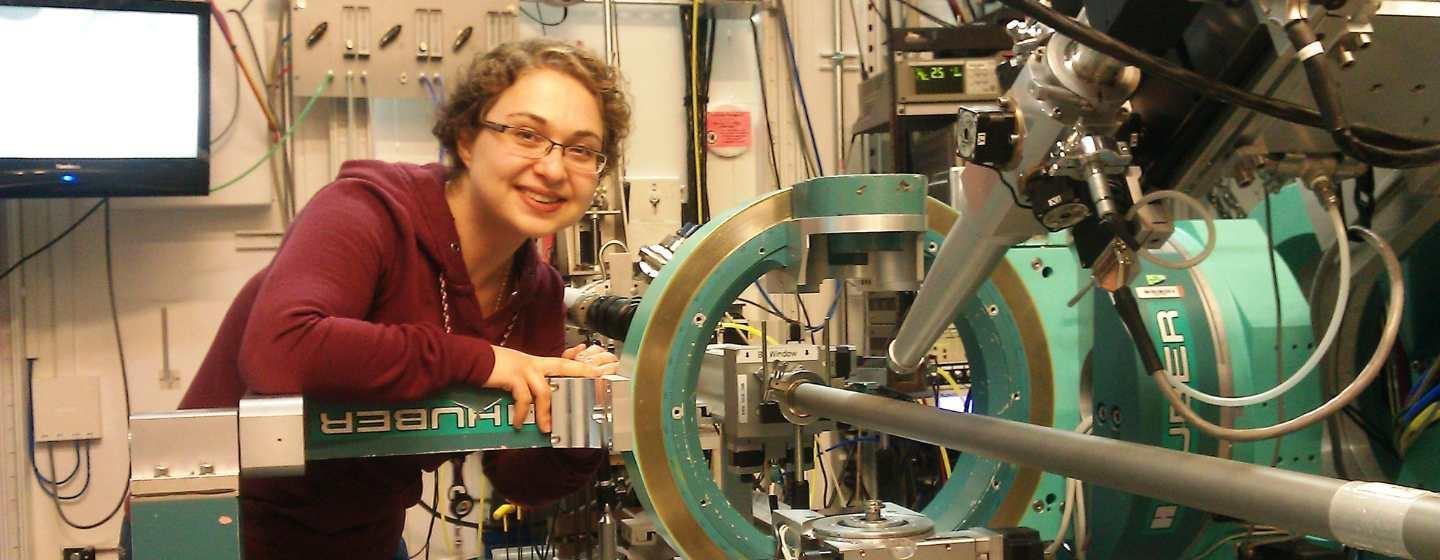What Cooking Shows and Physics Labs Have in Common


On any cooking show, you’ll see it’s the chef using the most common ingredients to create something extraordinary that will wow the judges.
It turns out the same is true in physics.
“It’s like cooking because if you want to create a recipe, you first must decide what you’re aiming at: is it steak, or is it chicken?” said Sara Haravifard, assistant professor of physics at Duke University. “All of those decisions inform which ingredients, or in my case, which elements I am going to pick from the periodic table.”
That’s right, you could call Sara Haravifard a physics chef.
In the seven years she has worked at Duke, Haravifard has built one of the best labs to design, develop and create exotic “quantum materials” in the nation. Quantum materials are essentially materials that don’t behave according to the laws of classical physics. Superconductors of electricity and complex magnets are good examples.
Using common elements from the periodic table, Haravifard and her team design and synthesize materials with exotic properties that are at the forefront of technological advancements. The new compounds are often formed as crystals. The aim is to create materials that exhibit properties normally only found at the subatomic, or quantum, level.
“We’re looking to harness the quantum mechanical features embedded in these materials to unveil new proprieties that have remained unreachable so far,” explained Haravifard. “Those properties can be used for future applications in quantum computing through quantum entanglement, highly efficient power generation and transmission through high-temperature superconductivity, and data security and advanced data-storage systems through spintronics, to name a few.”
Quantum materials have the potential to revolutionize the technologies that power our lives, just as the discovery of semiconductors did in previous decades.
Creating a new compound is just the start. Haravifard’s lab can also test and describe the physical and chemical properties of the new material.
That testing usually involves extreme conditions, ranging from ultra-low to ultra-high temperatures, high pressures and high magnetic fields. Researchers can study how the materials hold up and how it transforms from one state to another.
The team also utilizes research equipment off campus, such as the neutron beam facility at the Oak Ridge National Laboratory in Tennessee, to test new materials.
“Sometimes the quantum, or sub-atomic, features can be easily seen at those transitions,” adds Haravifard.
“Don’t forget to add a pinch of salt” is common to hear in cooking shows. However, that advice works just as well in physics labs.
Many compounds are categorized as “salt,” and because the “cooking” process to make new materials is done at very high temperatures, some amounts of those “salts” are lost to evaporation. To make up for that loss, researchers estimate the additional amount that would be needed using chemistry and tweak the recipe.
While a cake that doesn’t rise or a recipe that tastes awful is clearly a failure in the kitchen, failed material in physics is not always a failure.
In fact, Haravifard is careful to promote what success is because not creating something can also be considered a win.
“Success can be a negative result because that data point is still science,” said Haravifard. “You can make an important contribution because if you discover something that doesn’t work, that means nobody else spends months trying to get exactly what we were trying to do. Instead, we can provide suggestions to try something else. It’s all science, and we need to be happy about that.”